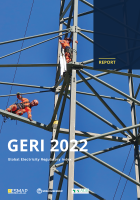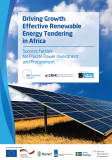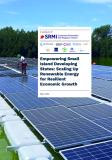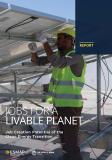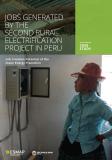Publications
The Global Electricity Regulatory Index (GERI) is part of the World Bank’s global efforts to promote a robust electricity sector regulatory environment. It builds on the Bank’s existing assessment of the regulatory frameworks under the Rethinking Power Sector Reform in the Developing World program and its ongoing collaboration with the African Development Bank on the Electricity Regulatory Index. This inaugural edition of the GERI report surveys 82 non-OECD countries from across the globe – about half in Sub-Saharan Africa and the rest across Asia, Europe, the Middle East, and Latin America. In 2021, the average global GERI score was 59 percent, representing an intermediate stage of development of power sector regulations in developing countries, with considerable room for improvement and the need for further action to strengthen regulatory frameworks. The average scores for the two pillars of GERI stood at 65 percent for Regulatory Governance Index (RGI) and 54 percent for Regulatory Substance Index (RSI). When it comes to regulatory governance, the most prevalent shortcomings are related to regulatory autonomy, with a global average score of 29 percent on regulatory independence from stakeholders. As for regulatory substance, the lower score results from the weak performance of countries globally on economic regulation of tariffs with a global average score of 37 percent. This does not indicate an absence of tariff methodologies, but rather the fact that tariff methodologies are often poorly specified.
Anshul Rana, Mumba Ngulube, and Vivien Foster. 2022. Global Electricity Regulatory Index (GERI) 2022. ESMAP Report. Washington, DC: World Bank. License: Creative Commons Attribution CC BY 3.0 IGO.
http://documents.worldbank.org/curated/en/099655012072260131/P1744810738d7b0430923a088b019fd36d7
